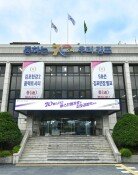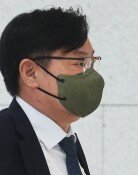SK’s Toshiba takeover should provide momentum for technological innovation
SK’s Toshiba takeover should provide momentum for technological innovation
Posted June. 23, 2017 07:13,
Updated June. 23, 2017 07:17
South Korean chipmaker SK Hynix, in a consortium with the Innovation Network Corporation of Japan and U.S. private equity fund Bain Capital, plans to take over Japanese semiconductor manufacturer Toshiba Corp.’s memory business for 18 billion U.S. dollars. The consortium aims to sign a main contract this month and complete the deal by March 2018. SK Hynix plans to contribute 15 percent of the total, but it is highly likely that SK Hynix, as the only chipmaker in the consortium, will establish a technological cooperation relationship with Toshiba. The deal would catapult SK Hynix from the world’s fifth-largest memory chipmaker to the second-largest after Samsung Electronics Co.
It seems that SK Hynix’s purpose of the Toshiba takeover is not to make itself bigger but to take the leadership in the technological innovation led by memory chips, which are core components for the “Fourth Industrial Revolution” symbolized by Internet of things, self-driving vehicles and artificial intelligence. SK Group Chairman Chey Tae-won called for “deep change” last year and stressed at Monday’s executive meeting the innovation of a business model that would change the rules of the game. The Toshiba deal is SK Group’s first step in its technological innovation drive.
Recently, global corporations such as Samsung, Intel, Qualcomm and GM are out for mergers and acquisitions in their attempts to upgrade their technological prowess at one stroke. In the age of the Fourth Industrial Revolution, a small number of companies with cutting-edge technologies will take most of the pie in a winner-take-all competition. While a chief executive officer’s decision is crucial in making bold investments, it is difficult for executives to exercise entrepreneurship at a time when corporate activities are depressed.
During the process of Toshiba’s sale of its memory chip arm, the Japanese government went as far as to mobilize a policy investment bank to create a consortium in order to ensure job security and minimize technological leakages. Even U.S. Secretary of Commerce Wilbur Ross provided support for U.S. companies, but it is questionable whether Korean companies are getting their government’s help in the global market. It takes two to tango. The government and corporations should run in one direction in good harmony to create more jobs.
Headline News
- Med professors announce intention to leave hospitals starting Thursday
- Bridge honoring Sgt. Moon Jae-sik unveiled in Pennsylvania
- Chief of Staff Chung tells presidential secretaries to stay away from politics
- US FTC bans noncompete agreements
- N. Korea launches cyberattacks on S. Korea's defense companies







